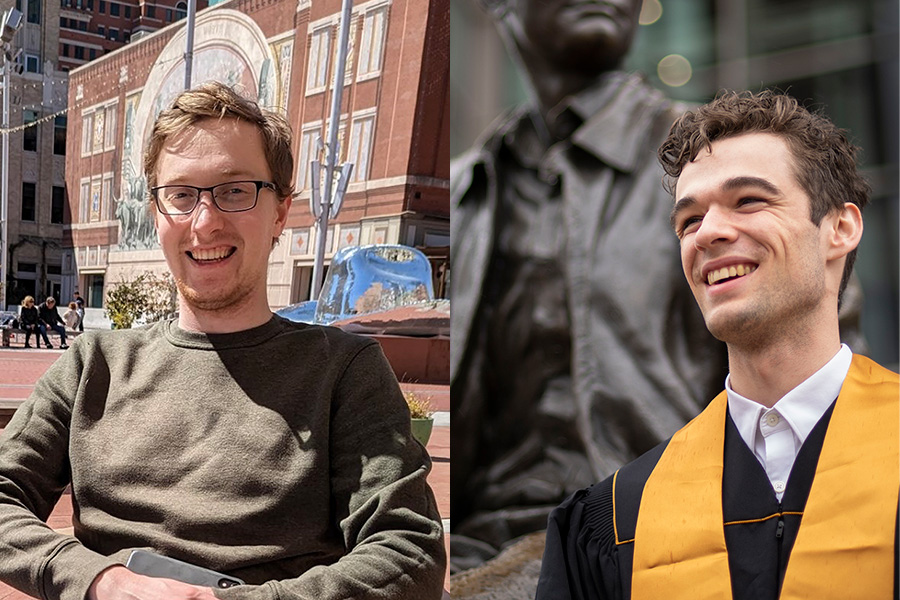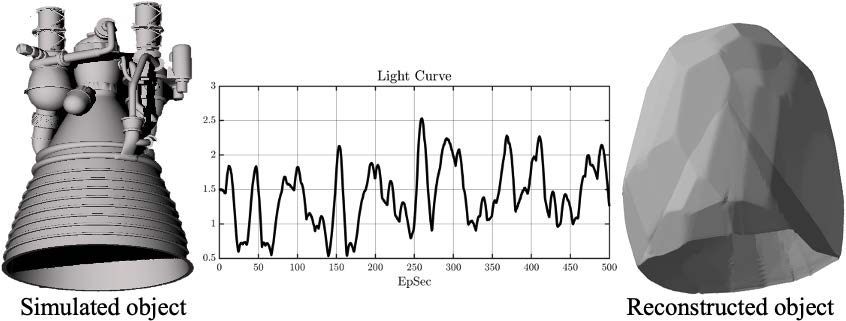PhD students receive DoD fellowships to study space debris and hypersonic vehicles
| Author: | Alan Cesar |
|---|

Two Purdue AAE graduate students have each received sought-after funding from the Department of Defense. The National Defense Science and Engineering Graduate (NDSEG) Fellowship named 165 fellows this year, just 5% of its 3,080 applicants — with AAE students Layton Howerton (left) and Liam Robinson (right) making up two of the six Purdue students on the list.
The fellowship pays a stipend and three years of tuition, plus funding for travel.

Liam Robinson is continuing the Space Domain Awareness study he began as an undergraduate under associate professor Carolin Frueh. Three different organizations were vying for his PhD proposal: He had competing offers from NDSEG, NASA Space Technology Graduate Research Opportunities and National Science Foundation Graduate Research Fellowship programs.
“I am relieved that the time I poured into the applications paid off. I am lucky to have a proposal that aligned well with fundamental science for the NSF, national defense for DoD, and space technologies for NASA,” he says.
With this funding, he will develop those algorithms to study satellites and orbital debris in greater detail.
“I’m very excited for the next few years!” he says. “I’ve always been interested in understanding and simulating how the world works, and the challenges that my research presents on a daily basis are definitely scratching that itch.”
Layton Howerton, in his second year of his direct-to-PhD program, is using computer simulations to study how shapes can affect aerodynamic properties at supersonic and hypersonic speeds. Designers of hypersonic vehicles must compensate for aerodynamic heating.
“This work focuses specifically on the shock-wave / boundary layer interactions which are common at supersonic and hypersonic speeds” he says.
Howerton will conduct this computational research under advisors Jon Poggie and Greg Blaisdell, both AAE professors. He also gives thanks to Lisa Nielsen at Purdue’s Graduate School for helping hone his application and choose NDSEG specifically.
“Lisa helped me a great deal during the application process,” he says. “She held webinars, in-person writing help sessions, and reviewed written drafts. I hope other students see this and take advantage of this great resource Purdue offers.”
